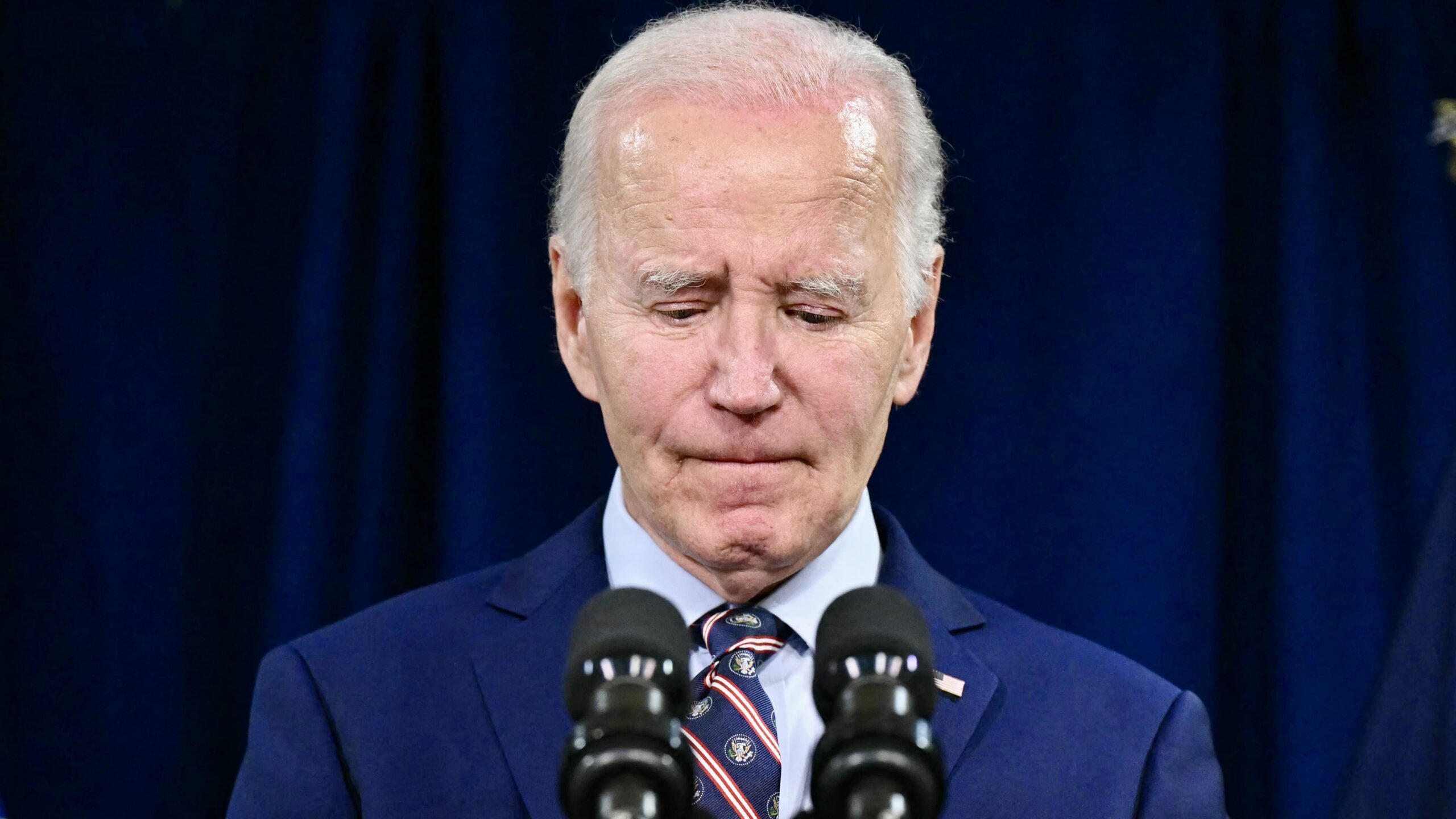Republicans gaining momentum in key states that will decide the election
With just a week until Election Day, Republicans' record early voting and registration turnouts may be sending warning signs to Democrats. Roughly 27.4 million Americans nationally have cast their votes early, with some swing states already exceeding 2016 rates. Although Republicans have historically hesitated to embrace early voting, several swing states that collect data based on party affiliation show that Republicans are now outpacing their Democratic counterparts. “You’d rather be in our position than theirs,” James Blair, a political director for Trump, told the Wall Street Journal. “It’s too early to start declaring victory, but the swings in our direction are very positive.”'Looking at who is showing up, I would say Republicans should feel good and Democrats may have some work to do.'Trump is currently outperforming Harris in Arizona by 1.5 points despite losing the state to Biden by 0.4% in 2020. At the same time, Republicans are also outpacing Democrats when it comes to early voting. As of Monday, 32% of Arizona's electorate have cast their ballots by mail-in or early voting. Of those 1.4 million ballots, 589,000 are Republican ballots, 486,000 are Democratic, and 326,000 are from third-party or independent voters. Arizona Republicans have also registered in greater numbers going into November compared to previous election cycles. As of October 2024, there are over 1.5 million registered Republicans and roughly 1.2 million registered Democrats. This nearly six-point registration gap between the parties is double the advantage Arizona Republicans had going into 2020. Republicans hold a similar advantage in the neighboring Sun Belt state of Nevada. There, Harris is trailing Trump by an average of 0.7 points, although Biden won the state by 2.4% in 2020. Republicans also have an unprecedented leg up in Nevada when it comes to early voting. Of the 712,000 early ballots that were cast as of Friday, over 280,000 are Republican ballots, 245,000 are Democratic, and nearly 180,000 were from unaffiliated voters. There has also been a favorable shift toward Republicans with respect to voter registration. Of the 2.4 million registered voters in Nevada as of September 2024, there are about 718,000 Democrats, nearly 674,000 Republicans, and about 1 million third-party or unaffiliated voters. In contrast, of the 1.9 million registered voters in September 2020, about 742,000 were Democrats, 626,000 were Republicans, and 604,000 were third-party or independent voters. Not only did overall voter registration in Nevada increase by roughly half a million, but there was also an increase in Republican, independent, and third-party registration while Democrats saw a decrease. However, unlike Arizona, Nevada implemented automatic voter registration in 2020, which may have contributed to this shift. Some voters attribute Trump's edge in the Sun Belt to a broader shift among Latino voters. Polls comparing Harris' and Biden's support among Hispanics have shown that the current Democratic nominee is hemorrhaging support with the demographic, while Trump has managed to gain ground. Farther east, in North Carolina, Trump is leading Harris by an average of 0.9 points, while also winning the state in 2020 against Biden and in 2016 against former Democratic nominee Hillary Clinton. Although the race is tight, Republicans have made strides.Over a third of North Carolina's eligible voters, or 3.1 million ballots, have been cast as of Tuesday. Of those early votes, Republicans are slightly outperforming Democrats, with roughly 1.1 million votes from Republicans and about 1 million from Democrats. Despite the close margin, Harris has actually pulled ads and resources from the state just a week from the election. Although Republicans are slightly ahead, they are actually outnumbered when it comes to voter registration in North Carolina. As of October 2024, roughly 2.4 million voters are registered Democrats and 2.3 million are Republicans. The registration gap has significantly narrowed compared to October 2020, with over 2.6 million registered Democrats and 2.2 million Republicans. Republicans are also gaining ground in Pennsylvania, the most electorally significant of the swing states. Although Trump lost the state to Biden in 2020 by 1.2%, the Republican nominee now boasts an average lead over Harris of 0.4 points. Of the 1.4 million early ballots cast in Pennsylvania, nearly 815,000 have been cast by Democrats, while just 439,000 have been cast by Republicans. Although Democrats are outpacing Republicans, the GOP has begun to close the gap. Georgia, Michigan, and Wisconsin don't collect data based on party affiliation, but there is still a record turnout for early voting and voter registration. “Looking at who is showing up, I would say Republicans should feel good and Democrats may have some work to do,” Michael Bitzer, a professor at Catawba College, told the Wall Street Journal. Like Blaze News? Bypass the censors, sign up for


With just a week until Election Day, Republicans' record early voting and registration turnouts may be sending warning signs to Democrats.
Roughly 27.4 million Americans nationally have cast their votes early, with some swing states already exceeding 2016 rates. Although Republicans have historically hesitated to embrace early voting, several swing states that collect data based on party affiliation show that Republicans are now outpacing their Democratic counterparts.
“You’d rather be in our position than theirs,” James Blair, a political director for Trump, told the Wall Street Journal. “It’s too early to start declaring victory, but the swings in our direction are very positive.”
'Looking at who is showing up, I would say Republicans should feel good and Democrats may have some work to do.'
Trump is currently outperforming Harris in Arizona by 1.5 points despite losing the state to Biden by 0.4% in 2020. At the same time, Republicans are also outpacing Democrats when it comes to early voting.
As of Monday, 32% of Arizona's electorate have cast their ballots by mail-in or early voting. Of those 1.4 million ballots, 589,000 are Republican ballots, 486,000 are Democratic, and 326,000 are from third-party or independent voters.
Arizona Republicans have also registered in greater numbers going into November compared to previous election cycles. As of October 2024, there are over 1.5 million registered Republicans and roughly 1.2 million registered Democrats. This nearly six-point registration gap between the parties is double the advantage Arizona Republicans had going into 2020.
Republicans hold a similar advantage in the neighboring Sun Belt state of Nevada. There, Harris is trailing Trump by an average of 0.7 points, although Biden won the state by 2.4% in 2020.
Republicans also have an unprecedented leg up in Nevada when it comes to early voting. Of the 712,000 early ballots that were cast as of Friday, over 280,000 are Republican ballots, 245,000 are Democratic, and nearly 180,000 were from unaffiliated voters.
There has also been a favorable shift toward Republicans with respect to voter registration. Of the 2.4 million registered voters in Nevada as of September 2024, there are about 718,000 Democrats, nearly 674,000 Republicans, and about 1 million third-party or unaffiliated voters. In contrast, of the 1.9 million registered voters in September 2020, about 742,000 were Democrats, 626,000 were Republicans, and 604,000 were third-party or independent voters.
Not only did overall voter registration in Nevada increase by roughly half a million, but there was also an increase in Republican, independent, and third-party registration while Democrats saw a decrease. However, unlike Arizona, Nevada implemented automatic voter registration in 2020, which may have contributed to this shift.
Some voters attribute Trump's edge in the Sun Belt to a broader shift among Latino voters. Polls comparing Harris' and Biden's support among Hispanics have shown that the current Democratic nominee is hemorrhaging support with the demographic, while Trump has managed to gain ground.
Farther east, in North Carolina, Trump is leading Harris by an average of 0.9 points, while also winning the state in 2020 against Biden and in 2016 against former Democratic nominee Hillary Clinton. Although the race is tight, Republicans have made strides.
Over a third of North Carolina's eligible voters, or 3.1 million ballots, have been cast as of Tuesday. Of those early votes, Republicans are slightly outperforming Democrats, with roughly 1.1 million votes from Republicans and about 1 million from Democrats. Despite the close margin, Harris has actually pulled ads and resources from the state just a week from the election.
Although Republicans are slightly ahead, they are actually outnumbered when it comes to voter registration in North Carolina. As of October 2024, roughly 2.4 million voters are registered Democrats and 2.3 million are Republicans. The registration gap has significantly narrowed compared to October 2020, with over 2.6 million registered Democrats and 2.2 million Republicans.
Republicans are also gaining ground in Pennsylvania, the most electorally significant of the swing states. Although Trump lost the state to Biden in 2020 by 1.2%, the Republican nominee now boasts an average lead over Harris of 0.4 points.
Of the 1.4 million early ballots cast in Pennsylvania, nearly 815,000 have been cast by Democrats, while just 439,000 have been cast by Republicans. Although Democrats are outpacing Republicans, the GOP has begun to close the gap.
Georgia, Michigan, and Wisconsin don't collect data based on party affiliation, but there is still a record turnout for early voting and voter registration.
“Looking at who is showing up, I would say Republicans should feel good and Democrats may have some work to do,” Michael Bitzer, a professor at Catawba College, told the Wall Street Journal.
Like Blaze News? Bypass the censors, sign up for our newsletters, and get stories like this direct to your inbox. Sign up here!
Originally Published at Daily Wire, World Net Daily, or The Blaze
What's Your Reaction?

































































































